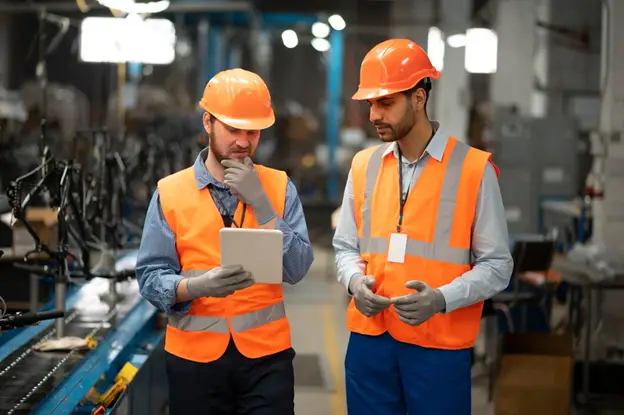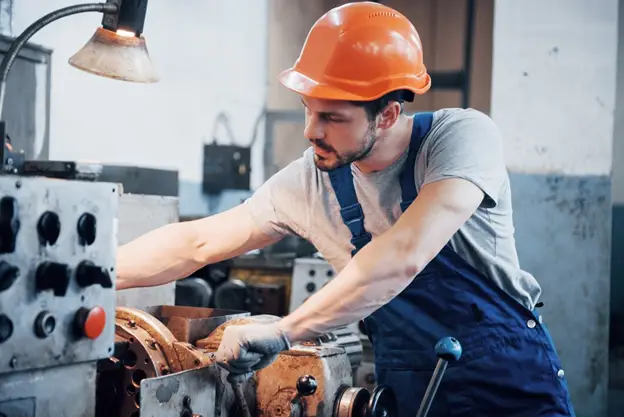Industrial equipment plays a crucial role in maintenance of the supply chain.
From production and assembly lines to packaging and transportation, these robust, multifaceted machines are indispensable.
However, to guarantee their longevity and functionality, regular inspection and maintenance need to be carried out.
This article explores the significance of maintenance in safeguarding industrial equipment in the supply chain.
Additionally, it delves into how companies like Bendtech Defence are pioneering innovative maintenance solutions to ensure optimal performance and reliability of industrial equipment in various sectors.

The Importance of Equipment Maintenance:
Maintenance of industrial equipment transcends the notion of being a mere obligatory task; rather, it constitutes a strategic investment in ensuring the seamless functioning of the supply chain.
This investment yields three crucial benefits essential for operational success.
Firstly, by proactively identifying and rectifying signs of wear and tear, maintenance extends the overall life cycle of equipment, averting costly breakdowns.
Secondly, maintenance interventions enhance operational efficiency, enabling machines to operate at peak performance levels, thereby maximizing productivity.
Lastly, it plays a pivotal role in promoting workplace safety by identifying and mitigating potential risks associated with malfunctioning equipment, safeguarding both personnel and assets.
Types of Maintenance for Industrial Equipment:
Maintenance strategies for industrial equipment encompass a diverse range of approaches, including reactive, preventative, predictive, and condition-based maintenances.
Reactive maintenance, often termed as ‘run to failure,’ entails allowing equipment to operate until it malfunctions before initiating repairs.
In contrast, preventative maintenance involves scheduled routine checks irrespective of the equipment’s current state, aiming to pre-emptively address potential issues.
Predictive maintenance utilizes data collected from the equipment to forecast when specific components are likely to fail, allowing for proactive interventions.
Condition-based maintenance relies on real-time monitoring of asset condition to determine the necessary maintenance actions, ensuring timely and targeted interventions based on actual equipment health.
Maintenance Practices That Extend the Lifespan of Industrial Machinery:

To prolong the lifespan of industrial equipment, strict adherence to the manufacturer’s guidelines is imperative.
Implementing a robust system for tracking and scheduling routine checks ensures timely interventions and prevents potential issues from escalating.
Regular cleaning of equipment to eliminate dirt, dust, and grime mitigates premature wear and tear, preserving its integrity.
Furthermore, the application of high-quality lubricants serves to reduce friction and prevent overheating, safeguarding critical components from damage over time.
Embracing these practices fosters equipment longevity, enhances operational efficiency, and minimizes downtime, thereby optimizing productivity within the supply chain.
The Role of Technology in Streamlining Maintenance Processes:
Advancements in technology have profoundly transformed practices, ushering in a new era of innovation and efficiency.
Cutting-edge solutions for equipment monitoring, diagnostics, and repairs have emerged, revolutionizing traditional approaches.
Technologies like Internet of Things (IoT) sensors enable real-time monitoring of equipment health, empowering predictive strategies by detecting potential issues before they escalate.
Augmented Reality (AR) tools offer technicians intuitive visual guidance, streamlining troubleshooting processes and minimizing downtime.
Furthermore, the integration of Artificial Intelligence (AI) algorithms enhances data analysis capabilities, facilitating more precise predictive forecasts and proactive interventions, ultimately optimizing equipment performance and prolonging operational lifespan.
The Environmental Impact of Effective Maintenance Practices:
Efficient maintenance practices not only serve to extend equipment longevity but also play a crucial role in promoting environmental sustainability within the supply chain.
Through proactive efforts, breakdowns are minimized, and energy consumption is optimized, leading to reduced carbon emissions and resource utilization.
Furthermore, adhering to eco-friendly protocols, such as proper disposal of hazardous materials and utilization of sustainable lubricants, serves to mitigate the environmental footprint of industrial operations.
Embracing these environmentally conscious practices not only aligns with corporate social responsibility initiatives but also fosters the development of a greener.
The Impact of Improper Maintenance:
Neglecting industrial equipment within the supply chain can have far-reaching consequences, posing significant risks to operational continuity.
Such neglect may result in unexpected breakdowns, precipitating severe disruptions across workflows and production schedules, ultimately impacting delivery deadlines.
Additionally, the costs associated with repairs escalate exponentially as neglected issues exacerbate over time, potentially straining financial resources.
Moreover, equipment malfunction poses a direct threat to operator safety, exposing the company to legal liabilities and compromising overall workplace integrity.
Prioritizing proactive maintenance practices is paramount in mitigating these risks, ensuring supply chain resilience, and safeguarding both personnel and operational efficiency.
Also read: How to Make Your Construction Equipment Last Longer: 6 Practical Tips!
Conclusion:
Maintenance of industrial equipment is a fundamental part of operational success in the supply chain.
By implementing effective upkeep strategies, companies can extend the lifespan of their machinery, enhance supply chain efficiency, and ensure the safety of their workers.
While taking proper care of industrial equipment may require significant effort and resources initially, the long-term benefits in terms of asset reliability, workforce safety, and reduced downtimes are invaluable.
Therefore, maintenance should not be viewed as an expense, but as an investment that protects vital industrial equipment, thereby bolstering the business’s bottom line.

Related Posts
Rock Quality Designation(RQD): Building Strong Foundations
Spread Footing
Masonry Cement
Plain Cement Concrete
Concrete Efflorescence
Concrete Pile
Stepped Footing
Fineness Modulus of Coarse Aggregates
Difference between Condo and Apartment